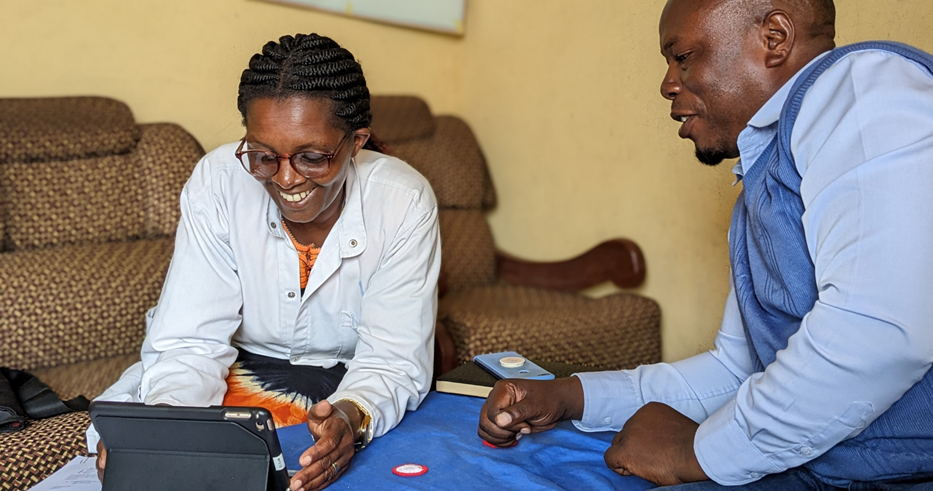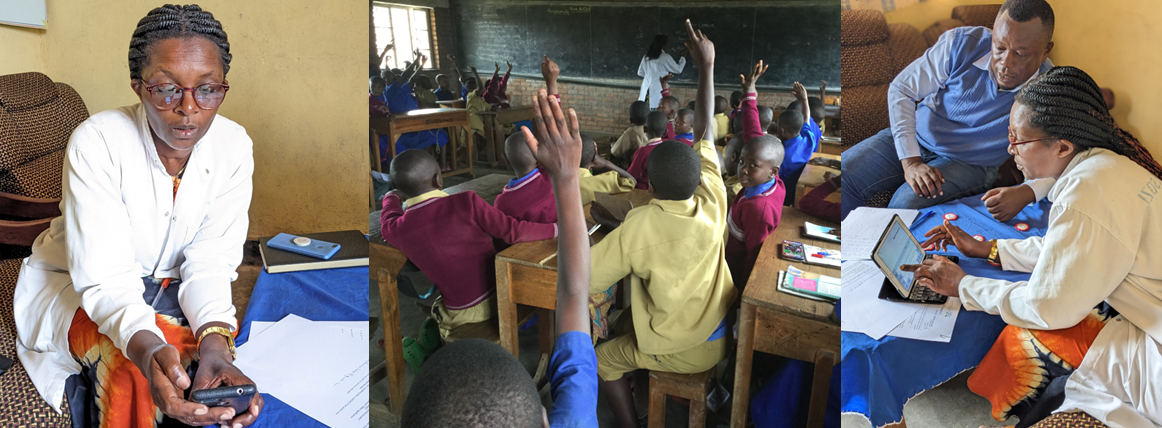
Empowering Teachers and Students to be Leaders in the Digital Age
Wellspring Foundation for Education
In Rwanda’s rural Rubavu District, many teachers and students lack digital skills, knowledge, and most importantly confidence due to their limited access to technology.
Supported by FIT, The Wellspring Foundation for Education tested an innovative approach to education in the Rubavu District of Rwanda where some 50% of the population lives in poverty with 63% residing in rural areas dependent on agriculture. When it comes to school enrollment, Rwanda has achieved gender parity at primary and secondary levels, including in Rubavu District. However, completion rates reduce significantly with each level of schooling. Some 72% of female students have attained primary school (grade 6), but only 17.2% of girls are enrolled in upper secondary school grades. Girls face negative gender-based attitudes within their families, communities, and schools, which lower their academic performance and lead to higher absenteeism and dropout rates, most noticeably at the secondary and tertiary levels.
This innovative pilot project was designed to improve quality of education and enhance gender equality by addressing two key challenges; the lack of continuous professional development for teachers that integrates gender-responsive practices; and teachers’ lack of access and ability to effectively use Information Communications Technology (ICT) tools for their professional learning.

Wellspring has taken a creative approach to build the digital skills of primary school teachers—especially women who lack opportunities to grow their technology toolkit. The result is an innovative, hybrid format to training which helps teachers grow in their use of technology through in-person and on-demand training.
The Wellspring team has adapted their traditional lesson planning modules to take on this new hybrid format. Rather than just in-person training, which is limited by time and space, teachers can now watch videos of Wellspring training on their phones, on the internet, or through a USB drive on their laptop. This approach builds teachers' digital skills for their own professional learning and equips them to offer more diverse and engaging gender-responsive lessons to their students. Women teachers who confidently use digital devices to teach and learn are powerful role models for all students, especially girls.
This blended training creates more supportive classrooms and increases advancement opportunities for women within the education sector—teachers just like 58-year-old Aurea (photo below).

“I used to fear technology, saying that I am not concerned as a woman and especially an old woman. This was because I was not interested and could not see myself concerned by technology.”
During a workshop on developing basic technology skills, Aurea was thrilled to use a laptop for the first time. She set up her first-ever email account, and with confidence in her newly developed typing skills , wrote an email to a respected guest speaker from a Rwandan government civil society organization. When she received an encouraging and immediate email response, Aurea’s pride and excitement burst forth and she jumped from her chair and danced around the room! She explained that she is now confident and motivated to use digital devices in her lesson planning after attending this training and growing in her ICT knowledge and skills.
“I am no longer afraid of teaching subjects like Science and Elementary Technology where ICT lessons are taught.”
But it wasn’t only Aurea who shared this sentiment. This positive attitude toward learning to use technology—the first time for several participants—was repeated by many other women teachers. These teachers expressed a fear not of the devices, but of being left behind. They know Rwanda is committed to moving into a digital era and they don’t want to be left behind because of their gender or age.
“I will use this training to help others, specifically old women like me working here in my school, to try to use computers by themselves. I will assist others who are still struggling. It will increase my communication with them by sending emails to teachers and school leaders.”
Through this training, teachers like Aurea are not only growing their digital skills but are also ready to equip their students to be leaders in the digital age.

